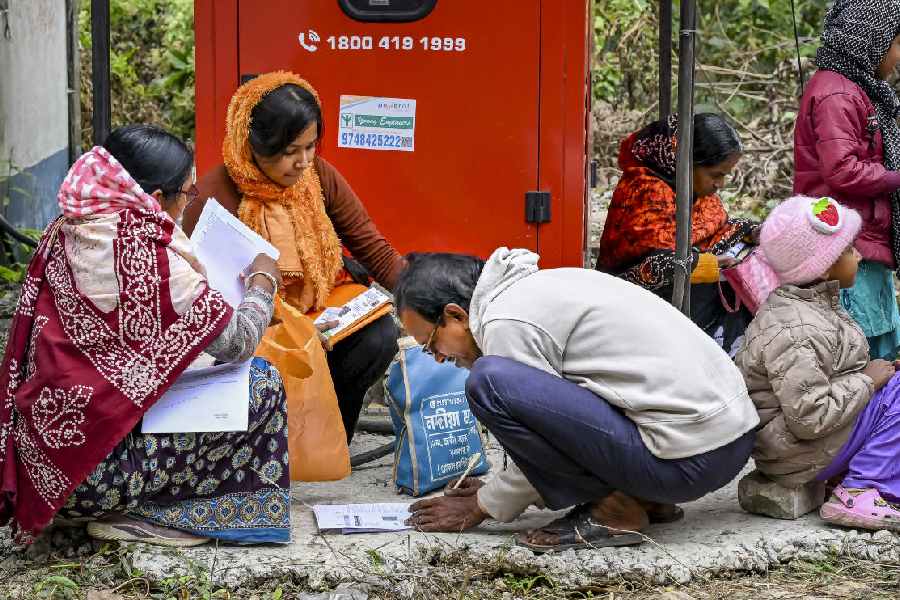 |
| Dry taps at the paediatric department of NMCH on Wednesday. Picture by Sachin |
Irregular water supply at Nalanda Medical College and Hospital’s paediatric department because of a pipe leak has left attendants high and dry amid high humidity.
The neonatal intensive care unit and paediatric intensive care unit have been operating on irregular water supply for over a week. Although doctors said treatment of patients had not been affected yet, there is a threat to them catching infections because of irregular supply.
Source of the problem is a leak in one of the pipes supplying water to the paediatric department from a tank outside the campus.
Making matters worse for the attendants and hospital employees are their hunt for water to drink and wash clothes in the sultry weather.
Superintendent Santosh Kumar said: “There is a leak in the pipe that brings water from outside to the hospital. This has led to water scarcity in the paediatric department.”
Arun Kumar Thakur, the head of department, paediatrics, told The Telegraph: “This has happened even when the tank supplying water to the Nalanda Medical College and Hospital is stone’s throw away from the campus. There is no water even in my chamber.”
He added that in the neonatal intensive care unit, for hours there is no water supply from the six to seven taps available. Attendants in need of drinking water or to wash clothes have to go out of the hospital. In the paediatric intensive care unit, a single water tap remains dry, while the four taps in the emergency ward are irregular.
Ram Ruchi Devi, a patient attendant, said: “We don’t have water to drink. We have to bring it from outside.”
The mother of another patient admitted to the paediatric intensive care unit said: “There is no water in this wing. We have to go to the neonatal intensive care unit where water is available in spurts from a tap. The queues are long there to collect drinking water”
Superintendent Dr Santosh said: “We are contemplating to arrange for a separate borehole for the neonatal intensive care unit so that such problems do not crop up later.”
The biggest threat facing the hospital is although the hospitalised children contracting infections. Dr Thakur said the children are at 10 times greater risk of catching hospital-acquired infections. He added: “Chances of children contracting meningitis or pneumonia because of water scarcity are higher.”










